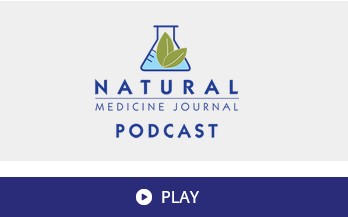Menopause hormone therapy is having a new moment in its long history of use and research. While the last 22 years, since the publication of the first paper from the Women’s Health Initiative (WHI), put what seemed like a permanent dark mark on the use of menopause hormones, researchers and clinicians who have kept up to date with the research in the last 22 years and longer, have realized its benefits and select risks for all of this time, and never did have the across the board dark mark against it. In fact, they understood and prescribed appropriately for its benefits when it was not contraindicated or posed more than comfortable risks. But now we have the reverse problem, it’s being thought by uninformed clinicians and patients and consumers that it’s the right thing to do for all perimenopause and menopause women. It’s not. It does not have benefit for all. It is to be used with caution and even contraindicated in many. Key points are knowing in whom do the benefits exceed the risks, and who really needs those benefits. Systemic menopause hormones should generally not be initiated after age 60 or after 10 years since the last menstrual period. Initiating outside of those parameters can increase the risk for cardiovascular disease, strokes, blood clots and Alzheimer’s dementia. (Local estrogen for the vagina and vulva for local symptoms, can be initiated at any time, and continued forever.). Duration of systemic menopause hormones is a different story. There is a very small increased risk of breast cancer at year 4 of use, if taking estrogen and a progestin, not quite 1 woman in 1,000 per year. Women who take estrogen only (because they do not have a uterus), most of the data now show no increased risk at 20 years of use. There is no absolute time to discontinue menopause hormone therapies. It should be an individual assessment, yearly, of what are the benefits and what are the risks, after also understanding and reviewing what is the need, or not. Is it to solve some quality of life symptom? Is it to reduce the risk of osteoporosis and POSSIBLY Alzheimer’s dementia ? Is it to treat a disease? (ex/ osteoporosis).
This podcast gives some highlights to these issues of initiation, duration, benefits and risks. Books I recommend that further help in deciphering menopause and hormones in a reliable way: Estrogen Matters (Bluming and Tavris); The Menopause Companion (Davies and Hudson). And two cutting edge books on the menopause brain and women’s brains: The Menopause Brain (Mosconi); The XX Brain (Mosconi).
A few key points: If you are 60 or older, or more than 10 years since your last menses, and your clinician says, go on systemic menopause hormones – be wary and seek a menopause hormone EXPERT. If you have been on menopause hormone therapy and your doctor wants to take you off – be wary – and seek a menopause hormone EXPERT. If you are on oral estrogen and 65 years or more – consider stopping if you do not have a compelling reason to continue. If you don’t stop you need to switch to a transdermal estrogen delivery, and wonder why your clinician did not already tell you this – switch clinicians. I hope you enjoy the podcast. LINK HERE


